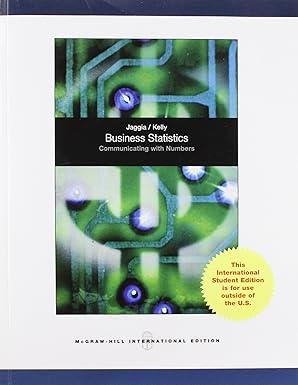F IL E A researcher wonders whether males get paid more, on average, than females at a
Question:
F IL E A researcher wonders whether males get paid more, on average, than females at a large firm . She interviews 50 employees and collects data on each worker's hourly wage (Wage), years of higher education (EDUC), experience
(EXPER), age (AGE), and gender of the employee (d equals 1 if male). A portion of the data is shown; the entire data set can be found on the text website, labeled Hourly Wage.
Wage EDUC EXPER AGE d
$37.85 11 2 40 1 21.72 4 1 39 0
⋮ ⋮ ⋮ ⋮ ⋮
24.18 8 11 64 0
a. Estimate: Wage = β 0 + β1 EDUC + β 2EXPER + β 3AGE +
β 4d + ε .
b. Predict the hourly wage of a 40-year-old male employee w ith 10 years of higher education and 5 years experience. Predict the hourly wage of a 40-year-old female employee w ith the same qualifications.
c. Interpret the gender coefficient. Is the gender variable significant at the 5% level? Does the data suggest that gender discrimination exists at this firm?
Step by Step Answer:

Business Statistics Communicating With Numbers
ISBN: 9780071317610
1st Edition
Authors: Kelly Jaggia





